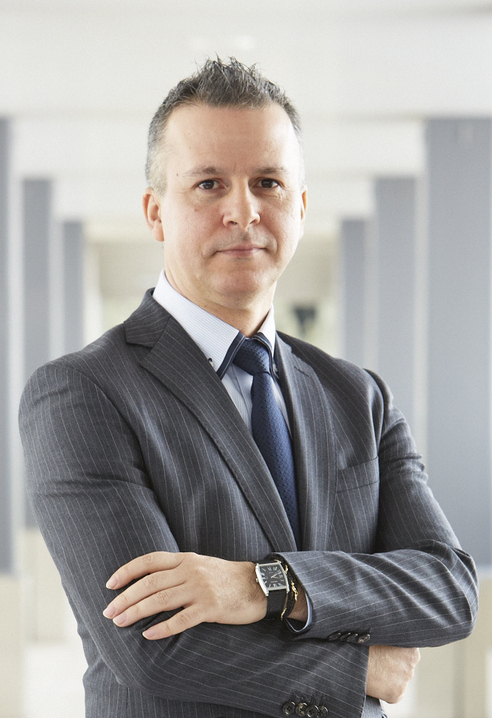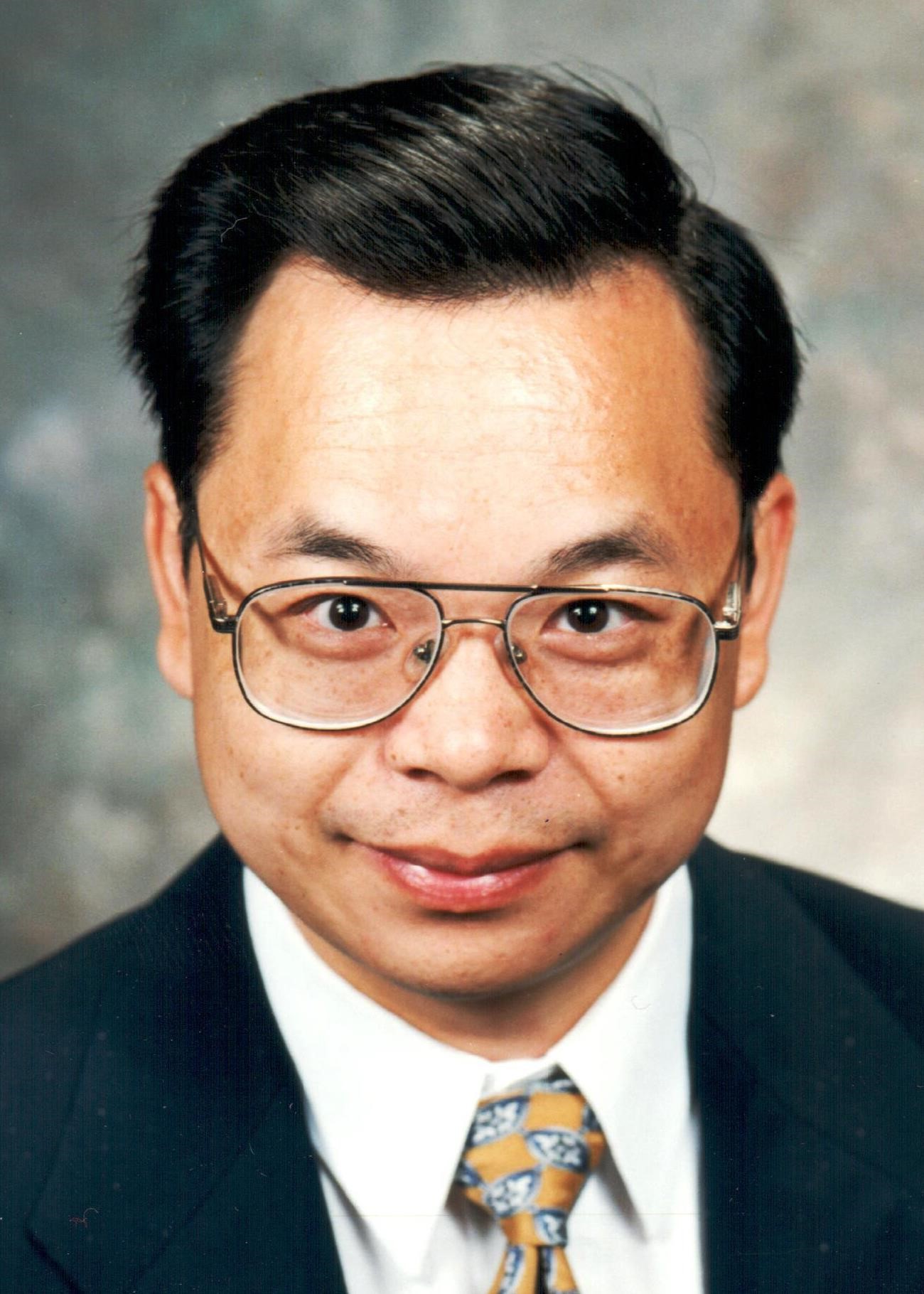
Prof. Ferial El-Hawary, Dalhousie University, Canada (IEEE Life Fellow)
Dr. Ferial El-Hawary (M'82-S'86-F'99) received the B.Eng. degree from University of Alexandria, and the M. Sc. from the University of Alberta, Edmonton, Canada, in Electrical Engineering; and the Ph.D.
in Oceans Engineering from Memorial University of Newfoundland, Canada. Dr. El-Hawary is President of BH Engineering Systems Ltd. She served on the Faculty of Engineering at Dalhousie University, where she established and directed the Modeling & Signal Analysis Research Laboratory. Sustained research contribution devoted to OCEANS Application with significant impact on defense, navigation and Oil & Gas exploration. She has published widely in IEEE Journals. She is Editor-in-Chief of The Ocean Engineering Handbook and served as Associate Editor of IEEE Oceanic Engineering Journal. With more than twenty-five years experience in teaching Electrical and Signal Processing for Oceanic Engineering applications, she has made significant and sustainable contributions in promoting and developing continuing education programs. She is the founder of the Modeling and Signal Analysis Research Laboratory at the Faculty of Engineering at Dalhousie University, and founder of BH Engineering Systems Ltd., specializing in technology transfer and professional development courses, linking academic innovations to industrial needs. Ferial has been invited by many of the IEEE International Conferences and University Institutions as a Plenary Speaker.
Ferial has been a devoted IEEE volunteer for over 30 years by serving IEEE and Oceanic Engineering Society (OES) with many different capacities as: IEEE-Board of Directors, Board MGA (2008-2009), IEEE-Honorary Membership Committee and IEEE Fellows Committee member. Served EEE/OES Administrative Committee Member as OES Vice-President International Activities, and OES Membership Committee Chair. Ferial is recognized for her leadership in establishing many of the OES Chapters Globally. Served many of IEEE OCEANS Conferences as General Chair and Co-Chair, as well as IEEE Section Congress’08.
Ferial is the recipient for many awards recognizing her contributions with devoting services to IEEE and some of its Technical Societies: She is the recipient of 2018 - In Appreciation of her Efforts to Promote IEEE Quebec Section, 2017 -“Murugan Memorial Award” for her contributions to the Canadian Atlantic Section and IEEE, the IEEE-Systems Man & Cybernetics Society (SMC) Outstanding Contribution Award, 2008, IEEE- Educational Activities Board (EAB) Meritorious Achievement Award in Continuing Education, 2007, Marine Technology Society (MTS) Ocean Engineering Compass International Award, 2005, the J.J. Archambault IEEE/Eastern Canada Council Merit Award, 2002, IEEE Third Millennium Medal, 2000, IEEE/RAB Achievement Award, 1999 IEEE/OES Distinguished Service Award, 1997, Fellow of MTS, 1985, Fellow of the Engineering Institute of Canada (EIC),1997 and She is a Fellow of IEEE since1999 .

Prof. Genci Capi, Hosei University, Japan
Genci Capi received the Ph.D. degree from Yamagata University, in 2002. He was a Researcher at the Department of Computational Neurobiology, ATR Institute from 2002 to 2004. In 2004, he joined the Department of System Management, Fukuoka Institute of Technology, as an Assistant Professor, and in 2006, he was promoted to Associate Professor. He was a Professor in the Department of Electrical and Electronic Systems Engineering, University of Toyama up to March 2016. Now he is a Professor in the Department of Mechanical Engineering, Hosei University. His research interests include intelligent robots, BMI, multi robot systems, humanoid robots, learning and evolution.
Speech Title: Socially Assistive Intelligent Robots Operating in Human Environments
Abstract: The research on intelligent robots will produce robots that are able to operate in everyday life environments, to adapt their policy as environment changes, and to cooperate with other team members and humans. Operating in human environments the robots have to be process in real time a large number of sensory data such as vision, laser, microphone, in order to determine the best action. Learning and evolution have been proved to give good results generating a good mapping of various sensory data to robot action. In this talk, I will overview the existing efforts including our attempts at creating intelligent robots operating in everyday life environments. In particular, I will focus on remotely operating surveillance robot, robot navigation in urban environments, and assistive humanoid robot. I will show experimental results that demonstrate the effectiveness of proposed algorithms.
PLENARY SPEAKER

Prof. Simon X. Yang, University of Guelph, Canada
Prof. Yang has diversified research expertise. His research interests include robotics, intelligent systems, sensors and multi-sensor fusion, wireless sensor networks, control systems, machine learning, fuzzy systems, and computational neuroscience. His significant research contributions can be reflected by his original and innovative work in biologically inspired intelligence with applications to real-time motion planning, tracking and control of various robotic systems, and various other engineering and biomedical systems. He has published about 450 referred papers, including over 250 journal papers. Prof. Yang he has been very active in various professional activities. Prof. Yang serves as the Editor-in-Chief of International Journal of Robotics and Automation, and an Associate Editor of IEEE Transactions on Cybernetics, IEEE Transactions of Artificial Intelligence, and several other journals. He has involved in the organization of many international conferences.
Speech Title: Bioinspired Intelligent Control of Autonomous Mobile, Aerial and Underwater Robotic Systems
Abstract: Research on biologically inspired intelligence has made significant progress in both understanding the biological systems and developing bionic engineering applications to robotics and control systems. In this talk, I will start with a very brief introduction to biologically inspired intelligent computational techniques and their applications to early vision and sensory motion in biological systems. Then, several bio-inspired intelligent approaches to various autonomous unmanned robotic systems will be presented, such as bio-inspired neurodynamics approaches to real-time path planning, tracking, and control of autonomous mobile robots, water surface and underwater unmanned vehicles, and aerial unmanned vehicles; and intelligent real-time coordination and cooperation of multi-robot systems.

Prof. Ahmed CHEMORI, LIRMM CNRS / University of Montpellier, France
Ahmed Chemori received his M.Sc. and Ph.D. degrees, both in automatic control from Polytechnic Institute of Grenoble, France, in 2001 and 2005 respectively. During the year 2004/2005 he has been a Research and Teaching Assistant at Laboratory of Signals and Systems (LSS - Centrale Supelec) and University Paris 11. Then he joined Gipsa-Lab (Former LAG) as a CNRS postdoctoral researcher. He is currently a tenured research scientist in Automatic control and Robotics for the French National Center for Scientific Research (CNRS), at the Montpellier Laboratory of Computer Science, Robotics and Microelectronics (LIRMM). His research interests include nonlinear (robust, adaptive and predictive) control and their real-time applications in robotics (underactuated robotics, parallel robotics, underwater robotics, humanoid robotics and wearable robotics). He is the author of more than 130 scientific publications. He co-supervised 17 PhD theses (including 9 defended) and more than 40 MSc theses. He served as a TPC/IPC member or associate editor for different international conferences and he was involved in the organization of different scientific events, including Summer Schools, workshops and conferences.
He has been a visiting researcher/professor at different institutions (NTNU - Norway, Tohoku University - Japan, EPFL - Switzerland, TUT - Estonia, HUST - China, UPC - China, CINVESTAV - Mexico, UPT - Mexico, Chiang Mai University - Thailand, KAUST - Saudi Arabia, ENIT - Tunisia, ENSIT - Tunisia, UMC - Algeria, etc).
He has also delivered various plenary/keynote lectures at different international conferences.
Speech Title: Recent Advances in Motion Control of Parallel Kinematic Manipulators
Abstract: Serial robot manipulators consist of a set of sequentially connected links, forming an open kinematic chain. These robots are mainly characterized by their large workspace and their high dexterity. However, despite these advantages, in order to perform tasks requiring high speeds/accelerations and/or high precision; such robots are not always recommended because of their lack of stiffness and accuracy. Indeed, parallel kinematic manipulators (PKMs) are more suitable for such tasks. The main idea of their mechanical structure consists in using at least two kinematic chains linking the fixed base to the travelling plate, where each of these chains contains at least one actuator. This may allow a good distribution of the load between the chains. PKMs have important advantages with respect to their serial counterparts in terms of stiffness, speed, accuracy and payload. However, these robots are characterized by their highly nonlinear dynamics, kinematic redundancy, uncertainties, actuation redundancy, singularities, etc. Besides, when interested in high-speed robotized repetitive tasks, such as food packaging applications, the key idea lies in looking for short cycle-times. This means obviously to look for short motion and short stabilization times while guaranteeing the robustness and performance with respect to disturbances and changes/uncertainties in the operational conditions. Consequently, if we are interested in control of such robots, all these issues should be taken into account, which makes it a bit challenging task. This talk will give an overview of some proposed advanced control solutions for high-speed applications of PKMs in food packaging and machining tasks. The proposed solutions are mainly borrowed from nonlinear robust and adaptive control techniques and have been validated through real-time experiments on different PKM prototypes and in different operating conditions.